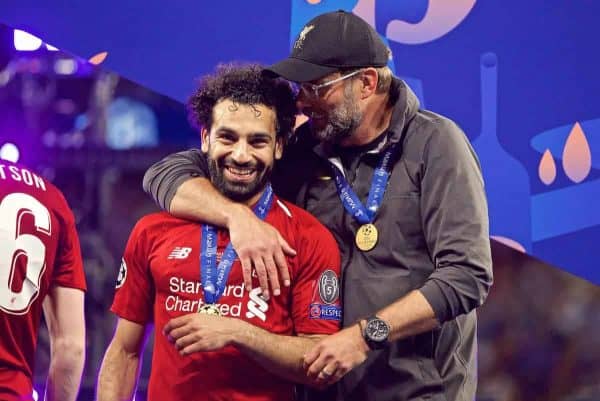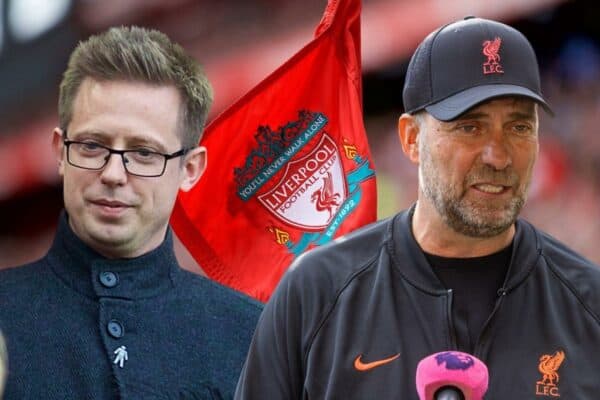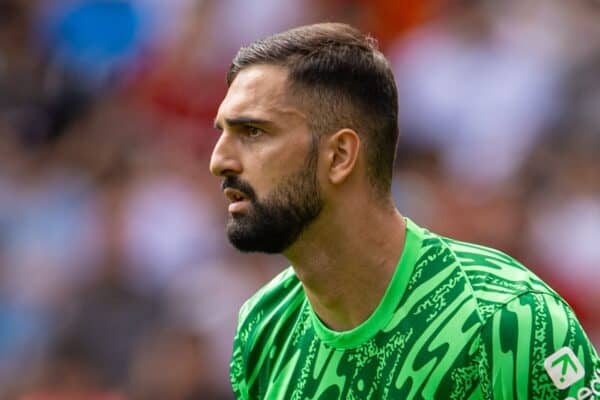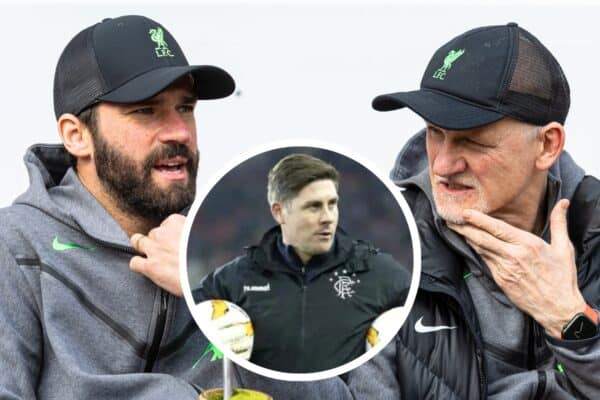It may or may not be a surprise to know that Jurgen Klopp wasn’t fascinated by statistics at Liverpool, but it will be hard to believe Michael Edwards was “anti-data” once upon a time.
Liverpool’s success in the transfer market over the last decade or so has been a team effort underpinned by data analysis that was once headed by Ian Graham.
Analysis led to Klopp’s appointment, and statistics played a role in him being convinced Mo Salah was the ideal signing when his preferences leaned towards the profile of Julian Brandt.
In an exclusive chat with This Is Anfield, Graham – the club’s former director of research – discussed how Klopp wasn’t enthused by stats and how there was a mindful way of presenting it to him.
“I had very few meetings directly with Jurgen. Jurgen is a very smart guy, he’s got an intuitive understanding of the sort of work that we do, but he’s not particularly fascinated by statistics,” Graham explained.
“And if you wanted to sort of present the player to him, we tried a couple of times showing him the statistics of players, but it just didn’t excite him or cause him to be enthusiastic in any way whatsoever.”
Presenting information in the right way

Graham’s department operated “as a service provider to other departments” and they would share their insights and recommendations, which included Michael Edwards “in terms of recruitment.”
It meant Graham and his team rarely interacted with Klopp, with Edwards the one who would present the shortlist of transfer targets and watch videos with the German.
“Being the manager of Liverpool, or manager of any football club, is a very stressful and time-consuming process, Jurgen’s got better things to do than look at my statistical analytics,” Graham said with a wry smile.
“When we went down to a shortlist, those shortlisted players had already gone through the data process.

“How that was presented to Jurgen would be more like a discussion with Michael as they were watching videos of the player to say ‘see how many shots Mo’s getting from wide, that’s much more productive than your typical wide forward would be’.
“That would all be informed by the data, but it comes through as the story from the video analysis rather than Jurgen saying ‘Ah I see Mo is number one in Italy for expected goals’ – that wasn’t how it worked!”
Think we can all agree signing Salah was a masterstroke by all involved – Roma must still feel like they were robbed in broad daylight!
Edwards’ shift

And speaking of Edwards, Graham revealed that even he was “anti-data” the first time they met having previously been tasked with passing on stats that “didn’t really mean anything” to Portsmouth coaches.
“He intuitively knew it didn’t make any sense, the coaches wouldn’t understand it,” Graham explained. “The numbers he was seeing wasn’t how the game worked in his view, and he was right.”
Understandable, then, as data for data’s sake is of use to no one.
Graham then added: “[Edwards] understood our approach and the sort of numbers we were coming up with like possession value, goal probability, and so on. He intuitively understood it. So he took our numbers as like a benchmark.”
You can purchase Ian’s book, How to Win the Premier League: The Inside Story of Football’s Data Revolution, here.
Watch and listen to the full chat with Ian in a 50-minute podcast episode, here.


















Fan Comments